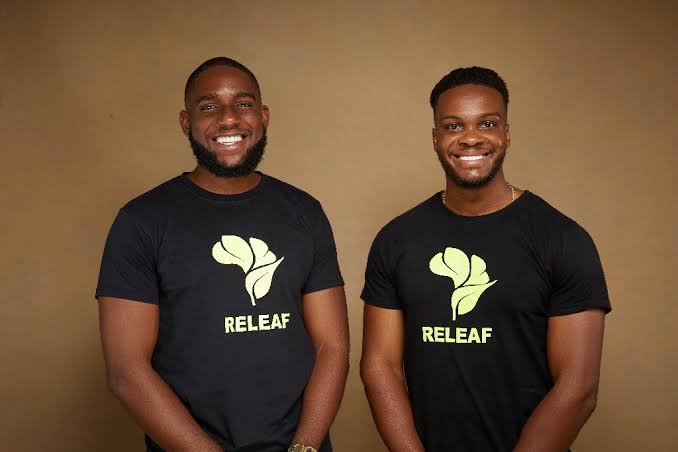Releaf, a tech business that enables African producers of consumer goods to more easily get premium ingredients for their factories, has raised $3.3 million in a pre-series A fundraising round that was oversubscribed.
The new funding will assist the launch of two new technologies: Kraken II, a portable version of its award-winning palm nut de-sheller, and SITE, a geospatial mapping platform that helps food processors deploy assets profitably.
Samurai Incubate Africa and Consonance Investment Managers led the investment round after guiding Releaf’s seed round. Stephen Pagliuca (Bain Capital Chairman) and Jeff Ubben (World Wildlife Fund Board member and Inclusive Capital Partners Founder) also invested.
SITE was developed with Stanford University’s Professor David Lobell, a MacArthur “Genius” Fellow and Director of the Center on Food Security and the Environment, who modified Nigeria’s oil palm tree age detection process.
This investigation supplied SITE’s foundational yield statistics. The application calculates oil palm plantings and annual output using cutting-edge geospatial mapping capabilities to provide a dynamic snapshot of farming activity. These statistics are coupled with Releaf’s proprietary data on soil type, rainfall, farmer productivity, and third-party data from IITA, PIND, and the Rocky Mountain Institute (RMI).
Releaf will use this dynamic data collection to train Reinforcement Learning Models in SITE to evaluate where consumer product producers can place their supply chains to best link with Africa’s decentralized farming system.
Releaf’s Kraken, the most sophisticated palm nut sheller in West Africa, has a portable, less expensive version called Kraken II. Because it can be transported to high-density farming areas, it is more profitable than its static predecessor, costs half as much, and eliminates more than 80% of margin-eroding logistical costs.
Read also: BLNK Raises $32 Million for Instant Inclusive Consumer Credit in Egypt
Kraken II and SITE’s impact
Releaf can target the finest prospects across Nigeria’s oil palm belt due to Kraken II’s portability and SITE’s placement and route planning.
Uzoma Ayogu, co-founder and CTO of Releaf, said, “SITE and Kraken II are the next steps in our plan to fundamentally transform the efficiency of agricultural supply chains in Africa.” We are excited to have partnered with an exceptional cohort of investors and collaborators to roll out these technologies.
To make food supply chains affordable, we must maximize extraction yields with leading processing technology and reduce logistics costs by bringing processing capacity closer to farmers. Before Releaf, stakeholders had to choose between one or the other because major factories had fantastic technology but were far away, leaving most farmers with antiquated crop preparation technologies. Both can now be maximized.”
Lipa Later and Lami Technologies form alliance to increase consumer base.
Africa is Releaf’s goal.
By the end of the 21st century, Africa’s fast-moving consumer products market will be globally significant. Releaf’s technology accelerates industrialization while ensuring inclusive success for the earth, farmers, food factories, and consumers in one of the world’s largest economic possibilities.
Releaf has processed over 10 million kilograms of palm nuts using its supply chain technologies since 2021 and raised its monthly income seven times. Presco, PZ Cussons, and other consumer goods companies have signed supply contracts worth over $100 million with the startup. The company’s valuation has tripled since its seed round last year.
According to Samurai Incubate Africa’s managing partner Rena Yoneyama, “Releaf’s success with its pilot Kraken confirms its premise, and we are pleased to continue supporting their ambitious ambition to establish effective supply chains within Africa’s agriculture business.” We continue to be impressed by their incredible commercial growth and technological development. We anticipate further success with the launching of SITE and Kraken II.




